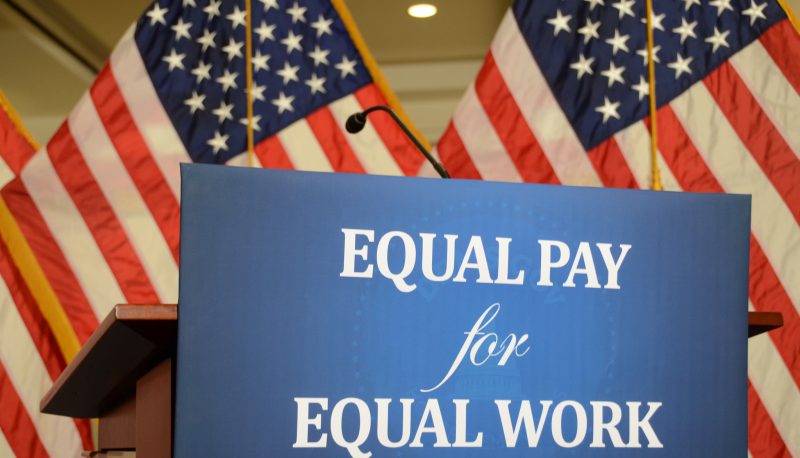On January 29, People For the American Way and PFAW’s African American Ministers In Action joined allied organizations in commemorating the tenth anniversary of President Obama signing the Lilly Ledbetter Fair Pay Act. That vital law repaired the damage done by the Supreme Court’s decision in Ledbetter v. Goodyear, but as critical as it is a decade later, it was only one step on the path to pay equity. That’s why we’ve also renewed our support for the Paycheck Fairness Act, which will provide new tools to battle pervasive pay gaps and challenge pay discrimination. You can download the latest coalition letter here.
Dear Representative:
As members of a broad coalition of organizations that promote economic opportunity for women and vigorous enforcement of antidiscrimination laws, we strongly urge you to vote for the Paycheck Fairness Act when it comes to the House floor for a vote. Despite federal and state equal pay laws, gender pay gaps persist. This legislation offers a much needed update to the Equal Pay Act of 1963 by providing new tools to battle the pervasive pay gaps and to challenge discrimination.
In January, we celebrated two major accomplishments. First, an historic number of women were sworn into the 116th Congress, many of whom—along with their male colleagues—ran and won on issues central to the economic well-being of families. Second, on January 29, 2019, we commemorated the tenth anniversary of the enactment of the Lilly Ledbetter Fair Pay Act. That vital law rectified the Supreme Court’s harmful decision in Ledbetter v. Goodyear Tire & Rubber Company. The law helps to ensure that individuals subjected to unlawful compensation discrimination are able to have their day in court and effectively assert their rights under federal antidiscrimination laws. But the Lilly Ledbetter Fair Pay Act, critical as it is, is only one step on the path to ensuring women receive equal pay for equal work.
There is no more fitting way to begin this historic Congress than by making real, concrete progress in ensuring all women receive fair pay. The Paycheck Fairness Act updates and strengthens the Equal Pay Act of 1963 to ensure that it provides robust protection against sex-based pay discrimination. Among other provisions, this comprehensive bill bars retaliation against workers who voluntarily discuss or disclose their wages. It closes loopholes that have allowed employers to pay women less than men for the same work without any important business justification related to the job. It ensures women can receive the same robust remedies for sex-based pay discrimination that are currently available to those subjected to discrimination based on race and ethnicity. It prohibits employers from relying on salary history in determining future pay, so that pay discrimination does not follow women from job to job. And it also provides much needed training and technical assistance, as well as data collection and research.
Women are increasingly the primary or co-breadwinner in their families and cannot afford to be shortchanged any longer. Women working full-time, year-round are typically paid only 80 cents for every dollar paid to men, and when we compare women of color to white, non-Hispanic men, the pay gaps are even larger. Moms are paid less than dads. And even when controlling for factors, such as education and experience, the pay gaps persist and start early in women’s careers and contribute to a wealth gap that follows them throughout their lifetimes. These pay gaps can be addressed only if workers have the legal tools necessary to challenge discrimination and when employers are provided with effective incentives and technical assistance to comply with the law.
It’s time to take the next step toward achieving equal pay. We urge you to vote for the Paycheck Fairness Act and encourage your colleagues to do the same, taking up the cause of Lilly Ledbetter and all those who have fought for equal pay.
If you have any questions, please do not hesitate to contact Deborah J. Vagins, Senior Vice President of Public Policy and Research at the American Association of University Women at (202) 785-7720, Emily Martin, Vice President for Education & Workplace Justice at the National Women’s Law Center at (202) 588-5180, and Sarah Fleisch Fink, General Counsel and Director of Workplace Policy at the National Partnership for Women and Families at (202) 986-2600.
